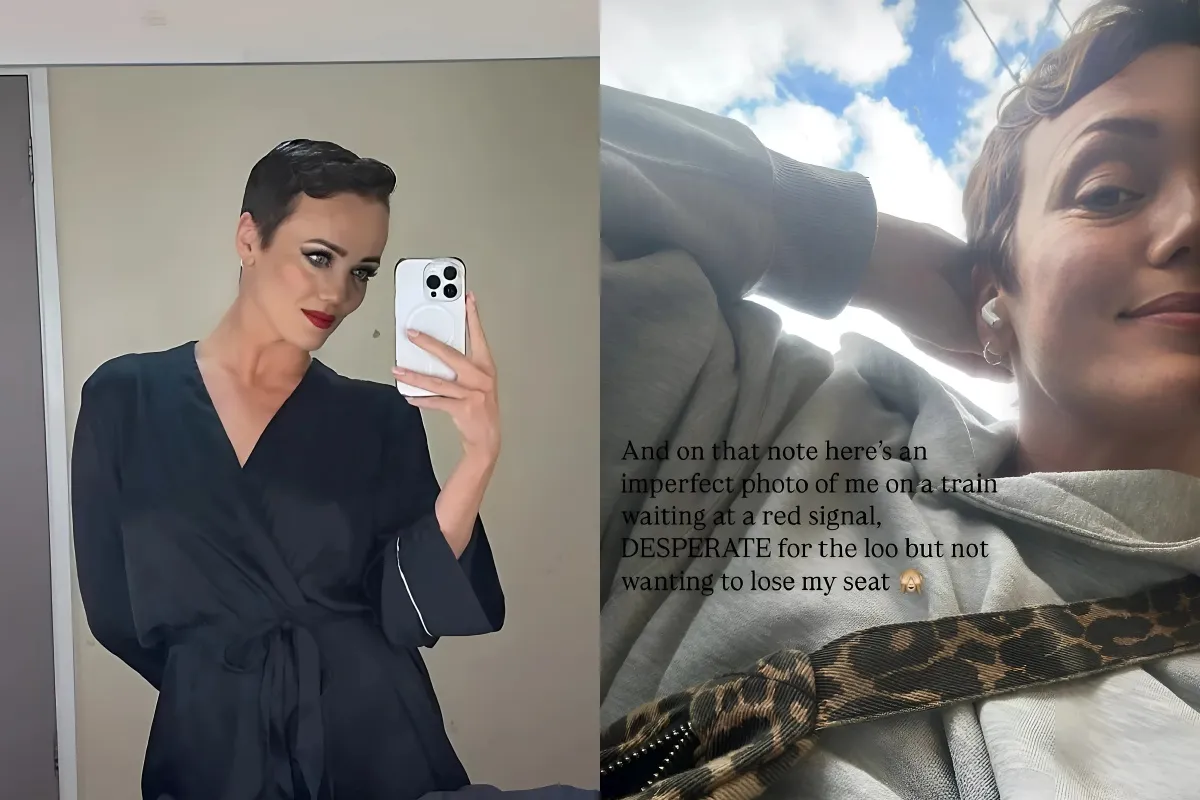THE Loose Women line-up is set to be slashed as part of a major shake-up of ITV’s daytime programming.
Sweeping changes announced yesterday mean the female-led, lunchtime talk show will only air for 30 weeks a year.




9
It means the full 26-strong pool of presenters and panellists will no longer be required.
Up to a third of the cast, which includes Denise Welch, Christine Lampard, Coleen Nolan and Charlene White, could be left without a seat at the table in the shake-up.
And Lorraine Kelly’s eponymous show — on straight after Good Morning Britain — has been cut to just 30 minutes a day and will also only air for 30 weeks of the year.
GMB, with hosts including Susanna Reid, Ed Balls and Kate Garraway, will take half an hour from Lorraine — running from 6am to 9.30am.
And in the weeks the bubbly Scot is not on air, it will get another 30 minutes.
Desperate cost-cutting drive
More than 220 jobs will be lost as part of the shake-up — almost half of the 450 employed on the four flagship shows GMB, Lorraine, This Morning and Loose Women.
The reshuffle comes amid a desperate cost-cutting drive at the broadcaster, and follows changes already made to its soaps.
But bosses insist the cuts will bolster other areas of the channel including new drama and sport.
The overhaul was announced yesterday by Kevin Lygo, managing director of ITV’s media and entertainment division.
He said: “Daytime is a really important part of what we do, and these scheduling and production changes will enable us to continue to deliver a schedule providing viewers with the news, debate and discussion they love from the presenters they know and trust as well as generating savings which will allow us to reinvest across the programme budget in other genres.
Katie Price reignites bitter Loose Women feud seven years after panel exit, ranting 'I hated that show'
“These changes also allow us to consolidate our news operations and expand our national, international and regional news output and to build upon our proud history of trusted journalism at a time when our viewers need accurate, unbiased news coverage more than ever.”
But one ITV worker told The Sun: “Everyone is completely gutted and in shock.
“We can’t believe they would dismantle these brilliant shows.
“It’s the death of daytime TV.”

9

9

9
Lorraine will now front her show five days a week, meaning stand-ins Christine Lampard and Ranvir Singh will no longer be required each Friday or to cover holidays because of the now shorter run.
But Christine is unlikely to be axed from Loose Women as she is one of its main hosts.
Kaye Adams, Ruth Langsford and Charlene White are also expected to be safe.
Instead, the axe is likely to fall on panellists who appear less often, such as Penny Lancaster, Katie Piper and Dame Kelly Holmes.
One worker at ITV told The Sun: “There’s no way all the Loose Women will be needed now there’ll be far fewer episodes to fill.”
Loose Women: The Podcast will continue and provide more work for the cast.
Central to the changes is a merger between the teams at GMB and ITV News, bringing together the news gathering operation into one hub at ITN’s HQ in Gray’s Inn Road, central London.

9

9
Lorraine, Loose Women and This Morning — with Ben Shephard and Cat Deeley — will move to a new studio and be produced by one team.
This Morning and Loose Women will remain in their regular slots of 10am to 12.30pm and 12.30pm to 1.30pm, respectively.
The supersizing of GMB is unlikely to affect its regular presenters Susanna, Ed and Kate.
But it is thought back-up hosts such as Adil Ray and Robert Rinder might end up out of work.
A source said: “In a cost-cutting, ‘one ITV’ drive, why would you keep employing random expensive talent for the odd backfill?”
The changes are expected to come into effect from January.
The news was broken to ITV Studios and ITV News teams at a meeting yesterday, which staff were asked to attend in person.
Mr Lygo said: “I recognise that our plans will have an impact on staff off-screen in our Daytime production teams.
“We will work with ITV Studios and ITN as they manage these changes to produce the shows differently from next year, and support them through this transition.
“Daytime has been a core element of ITV’s schedule for over 40 years and these changes will set ITV up to continue to bring viewers award-winning news, views and discussion as we enter our eighth decade.”
Our current strategy is very clear and it’s making the best of what we have in combination.
ITV chairman Andrew Cosslett
An ITV source said: “We recognise Daytime is a very popular genre and these changes and efficiencies are about preserving the future of the genre, whilst also funding additional investment in dramas like Mr Bates vs The Post Office, coverage of the biggest sporting events like next year’s football World Cup as well as the UK’s biggest reality and entertainment shows.”
Channel officials say the expanded GMB will continue its mix of news, interviews, debate and competitions while allowing for more regional news, agenda-setting investigations and exclusives, as well as reporting on and analysis of the biggest stories of the day.
They add that together with the half-hour expansion of the early evening news in 2022, this means ITV will have provided a 20 per cent increase in scheduled national and regional news each weekday.
The changes will form part of a renewed agreement between ITV and ITN for the latter to produce national, international, London, and digital news for ITV for the next five years, with options to extend.
The cuts come amid a desperate cost-saving drive at ITV.
Earlier this year, the broadcaster said it would be slashing its soap schedule to try to make savings on Coronation Street and Emmerdale.
From January, they will air as 30-minute episodes from Monday to Friday.
Meanwhile, there has also been the suggestion the channel is considering offers from RedBird IMI and Banijay for its ITV Studios arm, which makes Love Island.
ITV chairman Andrew Cosslett said last week: “If someone approaches the company with an offer to talk, that’s something we have to take seriously.
“But our current strategy is very clear and it’s making the best of what we have in combination.”
Viewers fell away as costs soared
By Rod McPhee
MAKE a note of yesterday’s date, because that’s the moment daytime telly received a terminal diagnosis from ITV.
Those who work in media have been saying for years that it was only a matter of time before live TV was put on life support.
It was a case of when, not if, execs started making huge cuts as costs continue to soar and viewing figures plummet.
Live TV is incredibly expensive to make, which would be bearable if it also raked in advertising revenue.
It doesn’t. That’s because the number of people tuning in to shows such as Good Morning Britain, Lorraine, This Morning and Loose Women are comparatively small.
Even if these shows create a buzz among the public, their ratings are eclipsed by those of their rivals at the BBC.
And, thanks to the licence fee, the Beeb doesn’t have to worry so much about where its money comes from.
Meanwhile millions of us now open our laptops rather than turn on our TVs and if we have time to kill during the day, we’re watching catch-up, streamers and YouTube.
The days when we were spoon-fed chat shows are over, and it’s simply not enough to serve up variations on the same tired format.
So slashing the hours, cutting the frequency and merging shows were inevitable moves by ITV.
They simply couldn’t have gone on the way they were.
Economies of scale on longer-running shows such as This Morning and Good Morning Britain mean they were always going to weather this storm better than their smaller counterparts.
But the likes of Lorraine and Loose Women — which at an hour each are incredibly expensive to make — were always going to be hit hardest.
Though they haven’t been wiped entirely from the schedules, having their running time cut and the number of annual episodes reduced is a firm sign that — sadly — their days are numbered.
And what will replace them?
It’s unlikely to be more live TV, that’s for sure.
And you can bet it will have to be a much cheaper alternative, otherwise what would have been the point in making such swingeing cuts?
Which only means that, as viewers, we’ll get less variety and less quality.
And as this form of telly increasingly reverts to the second-rate mush made in the Eighties, it will get caught in a vicious, downward spiral.



